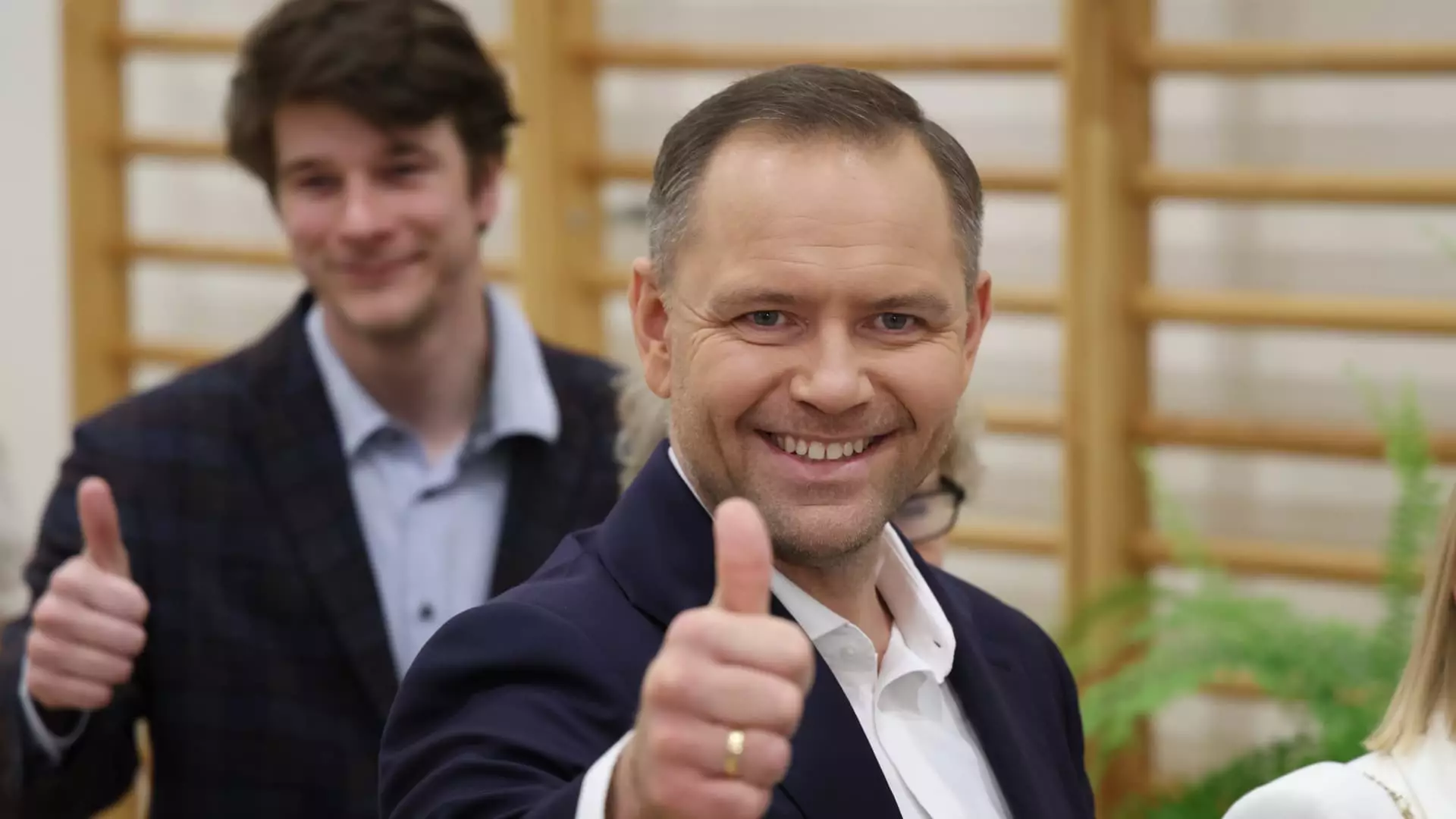Poland has found itself at a yawning political crossroads with the unexpected election of Karol Nawrocki, a hardline nationalist and protégé of Donald Trump. In a closely contested run-off against liberal contender Rafał Trzaskowski, Nawrocki emerged victorious, garnishing 50.89% of the vote. His win not only promises to disrupt the pro-European trajectory that Poland had been steering towards under previous leadership but also signals a broader resurgence of right-wing populism across the continent. This trend, emboldened by Trumpian ideologies, raises alarming concerns about the cohesion of the European Union amidst growing nationalism and isolationism.
It’s important to recognize the nuances of this shift. Nawrocki succeeds Andrzej Duda, who himself won the presidency by a meager margin against Trzaskowski in 2020. While the power of the presidency in Poland is somewhat symbolic next to the parliamentary system, he wields significant veto powers that can hinder progressive reforms. The very real possibility exists that his eurosceptic views could not only undermine hard-won relationships with Brussels but also curtail the empirical benefits that come from EU membership—a relationship Poland has strived to maintain despite internal dissent.
A Liberal Landscape Threatened
The tight race for the presidency reflects a fearful reality: the fragility of liberal democracy in Poland. Nawrocki’s party, Law and Justice (PiS), has a history of pushing back against EU valuation standards on issues such as judicial independence and civil liberties, leading to contentious relations with the European Commission. The message has been clear: the Polish populace is indeed tired of being dictated to by Brussels and appears willing to gamble on a leader who promises to fortify national sovereignty—even if it comes at the expense of destabilizing vital EU funding and cooperative initiatives.
Notably, Poland’s economy was a net beneficiary of EU funds, gaining approximately €137 billion—a lifeline that Nawrocki’s administration could easily jeopardize with its eurosceptic stance. His rhetoric during the campaign suggested a cooling of relations with Ukraine as well, which could have far-reaching consequences in the ongoing conflict with Russia. The fears of a fracturing alliance against Kremlin aggression are not unfounded; Nawrocki has expressed skepticism towards Ukrainian President Volodymyr Zelenskyy’s leadership, framing a narrative that could alienate Poland from one of its closest allies in a time of dire geopolitical tension.
Resurgence of Right-Wing Populism
Nawrocki’s victory is an increasingly frequent narrative in contemporary Europe, where right-wing populism is mounting in its appeal. The winds of change have blown through various European states, with liberal victories becoming increasingly scarce. In June, Romania and Portugal signaled a consistent preference for progressive governance, yet here we are watching Poland set a counterexample. It almost feels like a rallying call for alt-right movements, resurrecting the spirit of Trumpism and its legacies of divisive politics.
What’s worrisome is the embrace of international endorsements aimed at solidifying this populist narrative. U.S. Homeland Security Secretary Kristi Noem’s presence at a Conservative Political Action Conference in Poland just days before the election epitomizes the intertwined fates of American and Polish right-wing politics. Her endorsement of Nawrocki as a leader “just as strong” as Trump speaks volumes about the exportation of populism. Such advocacy—and the willingness of foreign officials to politically intervene—can further polarize the electorate and enmesh Poland within an isolationist, nationalistic identity that looks outwardly but feels inwardly paranoid.
Implications for Transatlantic Relations
As Nawrocki embarks on his term, the implications for transatlantic relations could be profound. Poland’s alliance with the U.S. has historically been built on mutual security interests, particularly in the face of a belligerent Russia. However, if Nawrocki adopts a more isolationist philosophy, echoing Trump’s disdain for European allies perceived as “failing,” the model of cooperation that has benefited Warsaw may shift drastically.
Political analysts will undoubtedly be keeping a close eye on how Nawrocki balances his populist rhetoric with the practical necessities of foreign policy. The world is watching as Poland’s staunch commitment to NATO and its strategic positioning in Eastern Europe may be put to academic scrutiny. The political landscape is changing, not just within Poland, but across Europe—a region where democratic norms are increasingly under siege.
In this turbulent atmosphere, one can’t help but wonder: will Poland be the canary in the coal mine for liberal democracy, or a harbinger of an increasingly fragmented European landscape? The stakes have never been higher.

